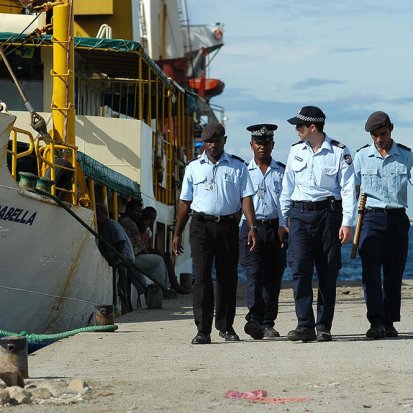
Background: As a signatory to the Paris Declaration on Aid Effectiveness (2005), Australian government policy is guided by the declarations five key principles, one of which is the alignment of aid with host government systems. As the second largest deliverer of Overseas Development Assistance in Australia, the Australian Federal Police (AFP) works to comply with the practices outlined in the Paris Declaration.
In March 2015, Sustineo was contracted to undertake a research project for the AFP’s International Deployment Group (IDG) to investigate the efficacy of using the alignment principle for effective aid delivery within the police development context, specifically through better understanding the work of other donors in post conflict and fragile environments.
Approach: Sustineo’s approach to this assignment combined high quality research with practical insight and experience within police development and Pacific contexts. The project drew on an extensive desk review of literature, complemented by consultation with key stakeholders, and field visits to the Solomon Islands and Tonga.
The desk review focused on identifying a strong understanding of security sector reform and police development internationally, the risks of using the alignment principles, and strategies to mitigate those risks. The stakeholder consultations revealed existing government policies within Australia and internationally that were analysed and mapped for application in a policing context. The field visits to the Solomon Islands and Tonga provide case studies to illustrate issues that first surfaced in the desk review, providing critical insight into the practical ways in which alignment practices occur on the ground.
Outcome: Sustineo provided the AFP with a comprehensive assessment of aid alignment and an evidence-based analysis of the viability of using host government systems in police development programs. The final report provided the IDG with critical information on the status of ‘alignment’ in the delivery of the AFP’s overseas development programs, including an overview of how and where the AFP is aligning with partner government systems in the implementation of overseas programs and the alignment context in each of the relevant partner governments.
This was complemented by two practical outputs to assist the IDG in the implementation of the principle of aid alignment within their context. First, an Alignment Handbook was developed to assist police commanders on deciding whether or not to align their overseas development programs with partner government systems, and the extent to which alignment may be possible. This included information on the principles and practical application of alignment, as well as the processes for considering monitoring, evaluation and risk mitigation strategies. Second, an Alignment Guidebook for AFP Mission Commanders provided information and guidelines focused on alignment in overseas police development programs.